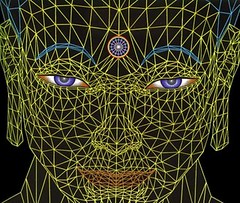Though unsuccessful in their attempt, neuroscientists were organizing a discussion around the potential synergies between neuroscience and Buddhism; organizers were concerned about the perceived conflict between science and religion. Excerpt from the Science & Spirit article:
Craving, according to Buddhist thought and explained by Alan Wallace of the Santa Barbara Institute for Consciousness Studies, is “a kind of desire in which one falsely superimposes agreeable qualities upon an object, cognitively screens out its disagreeable qualities, and then desires the object as a true source of pleasure and well-being.” Things commonly craved are wealth, sensual objects, praise, and the esteem of others, he said.Entire article.
“None of these objects are actual sources of genuine well-being, nor does the experience of such objects have an invariable correlation with the experience of pleasure of any kind,” Wallace explained. True well-being does not come from an outside stimulus, but from “a healthy and balanced mind,” he said. The challenge lies in cultivating desires that lead to genuine well-being for oneself and others while minimizing craving, which is based on a misconception of reality.
The neuroscientific definition of craving focuses on what happens in brain cells when there is a motivation to reach a goal, countered Doctor Howard Fields, the director of the Wheeler Center for the Neurobiology of Addiction at the University of California, San Francisco. “The goal could be something needed to maintain a state that is necessary for individual survival, including food, drink, warmth, or rest,” he said. But in addition to instinctive goals, individuals can develop motivation for actions that are unhealthy, such as overeating, drinking alcohol, or using tobacco or addictive drugs.
“Whatever the goal,” Fields said, “the neurobiological view is that cravings arise from chemical changes in the brain that lead to activity in neurons that are connected to the sense organs and muscles. The activity of specific groups of these neurons leads to the unhealthy actions and to the subjective experience of strong craving.”
Tags: Buddhism, Neuroscience, Science and Religion.


No comments:
Post a Comment